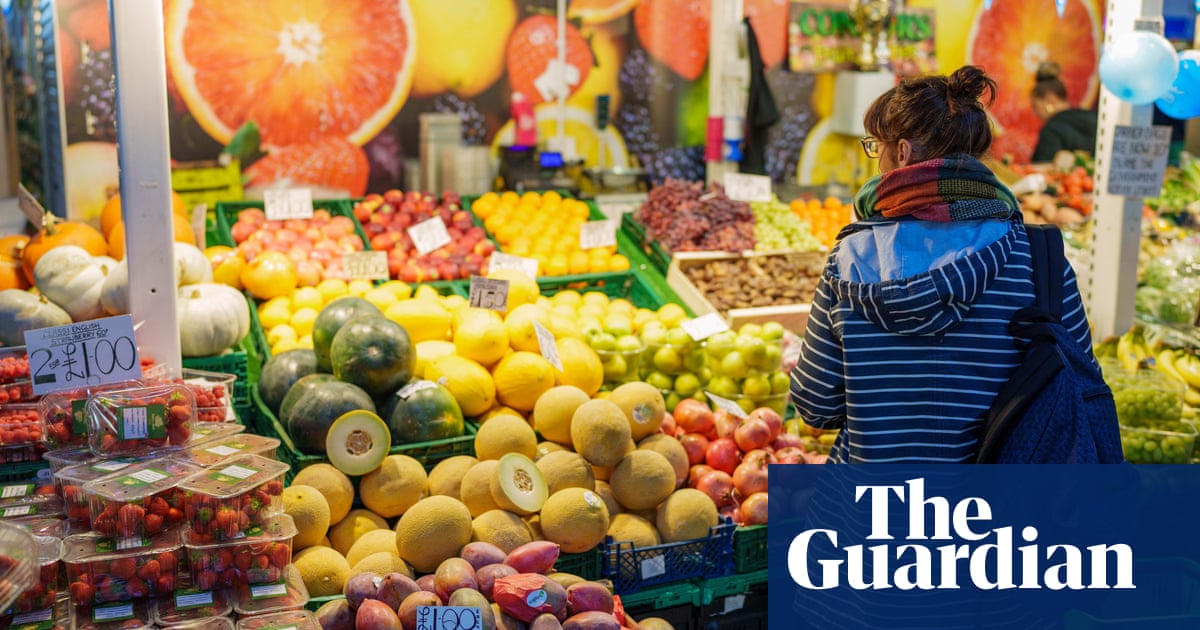
Britain’s biggest supermarkets are facing calls for the UK’s competition watchdog to investigate claims of profiteering amid the cost of living crisis, as industry figures show food price inflation soared to a record high in April.
With the rising cost of a weekly shop adding to pressure on households across the country, the Liberal Democrat leader, Ed Davey, called on the Competition and Markets Authority (CMA) to investigate whether any profiteering was taking place among supermarkets and food multinationals.
Government figures show food and drink prices rose by almost 20% in the year to March, the fastest annual rate since 1977. Analysis by the Lib Dems showed the cost of a typical weekly shop has now risen by nearly £12, or £604 in the space of a year.
Davey criticised supermarkets for raking in millions of pounds in profits while food inflation has soared. Large grocers have reported a drop in profits in recent weeks, but experts have said more could be done to help shoppers struggling with rising prices.
“We need to bring soaring food prices back under control and offer relief to families. That means cracking down on profiteering by food multinationals and the big supermarkets so customers get a fair deal,” he said.
The UK’s biggest supermarkets have made billions of pounds in profits between them over the past year, drawing sharp criticism from union leaders who say supermarket bosses are gouging customers to benefit from “greedflation” – when firms exploit high inflation to create excessive profits.
The Lib Dems said the CMA should investigate reports that food producers and supermarkets could be unfairly using their market power to inflate their markups and raise prices even further. A similar investigation into petrol prices was launched last year.
Last week, Sainsbury’s announced profits of £690m for the year to 4 March, beating expectations. Chief executive Simon Roberts said the retailer’s profit margins had slipped from 3.4% to 2.99% amid the impact of rising costs, while arguing it was “absolutely determined to battle inflation for our customers”.
Tesco recorded profits of £753m last year, half the level a year earlier. Ken Murphy, the Tesco chief executive, said the retailer was “robustly challenging every cost increase” with suppliers and had not passed on all its additional costs to shoppers.
The call for an investigation comes as figures from the British Retail Consortium show food price inflation soared to the highest level on industry records in April. However, analysts said costs may have peaked and should start to come back down over the coming months.
The latest snapshot from the retail industry body showed food price inflation accelerated to 15.7% in April, up from 15% in March.
The BRC said ready-meals became more expensive due to the knock-on effect from increased production and packaging costs. Coffee was more expensive due to the high cost of beans and major producers exporting less.
“Meanwhile, the price of butter and vegetable oils started to come down as retailers passed on cost savings from further up the supply chain,” said Helen Dickinson, the chief executive of the BRC.
Dickinson said grocery prices should start to reduce over the next few months as “the cut to wholesale prices and other cost pressures filter through”.
Overall shop price annual inflation decelerated to 8.8% last month, down slightly from 8.9% in March, helped by spring sales for clothing, footwear and furniture.
Dickinson said: “We should start to see food prices come down in the coming months as the cut to wholesale prices and other cost pressures filter through. In the meantime, retailers remain committed to helping their customers and keeping prices as low as possible.”












